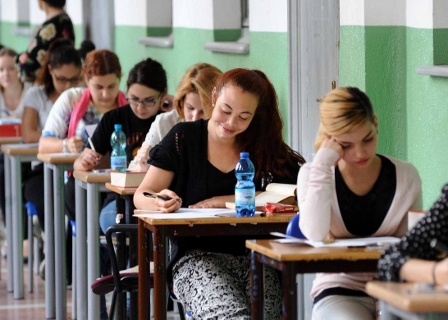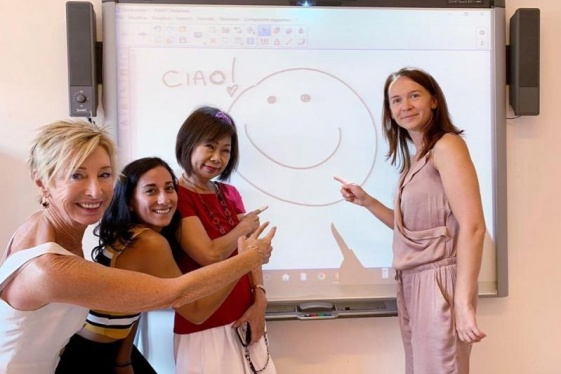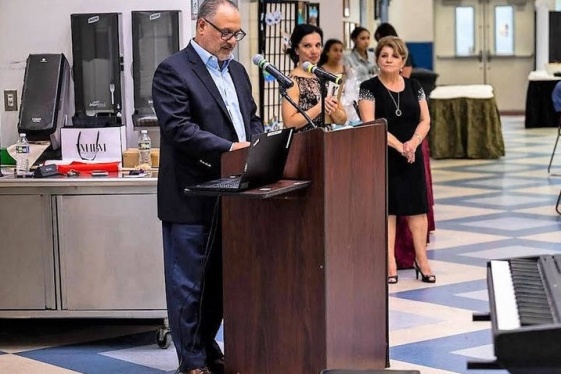

WTI Magazine #78 2016 April 15
Author : Elda Buonanno Foley Translation by:
Being a college professor in the USA frequently exposes me to the same questions posed by my students as to the amount of study that an average Italian student needs to put in to complete his/her journey in academia. In order to provide a complete and fair answer to my learning community, I need to trace a very brief profile of how school works in our Bel Paese and only after, I can attempt to provide an exhaustive reply to the stereotype.
Let me start by saying that the Italian contemporary school is the result of a long journey of renovation and adjustment to the contemporary local and global issues. The normal cycle of the school starts with the so called primary school (once called the elementary school) that lasts 5 years: once an exam was required at the fifth year to be moved to the secondary school (3 years). During this period, the students are exposed to subjects such as Geography, World History, Language and Grammar, Foreign language/s, Math, Science and Technology, Art, Religion and Physical Activity. The idea is to expose the young learning community to some important global views and make it aware of the varieties of issues and values that our complicated society is made of.
Once this secondary cycle is finished (by the way, the students need to pass an exam at the end of the third year), they move into the second part of the "secondary cycle", commonly known as the high school. And in this cycle, the main peculiar differences with the American High Schools start to reveal themselves. Firstly, this cycle is based on a 5 year program and often the student will follow a specific program of specialization: there are high schools focused on foreign languages (3 languages will be learned in the 5 year program), on economics and science, on music, on classical and humanities studies, and on accounting and hotel management. Thus, it is understandable if an average high school student in America or my freshmen and seniors in college look puzzled and amazed while pondering on the amount of study that this first cycle (from 5 to 18 year) entails: disciplines that span from humanities to philosophy, math, biology and chemistry, to entire cycles on world geography and world history. I can still recall my old history book of my high school year with the history of the Egyptian Dynasties and the Crusades heroes and victims, not to mention the fascinating adventures in the Ming's China till its Republic declaration.
I am not just dealing with the variety of topics explored and studied but also on the very different approach toward school and the institution: the instructor, for example, is seen as the official representative and thus the thick line between formal and informal applies solidly. We could not address in any form or shape the instructor but we had to keep our demeanor: things have changed a lot in the recent past, however, there is still a lot of pressure for performance. As a matter of fact, performances are a greater part in the school system with written exams and quizzes outnumbered by oral presentations and, so called, interviews with the instructor. Thus, it is quite a standard routine for an Italian student not to be "concerned" in having to talk in class: it is impressive to see how the American students are much more confident in their written samples but not the same for the oral part. Exactly the contrary occurs for their Italian peers.
In a recent article published by the Italian newspaper Corriere della Sera, it is indicated that Italian students are "extremely stressed at 15 years old for the enormous pressure that the school bestowed on them, including performance anxiety and their relationship with the professors". Considering my previous description, it might appear clear why. However, many scholars, and indeed many Italians, still believe that the Italian school system is one of the best in the world. Why? Well it is easily summarized.
Firstly, our programs are geared more towards a global view on several topics.
Secondly, the programs create a very solid background, a theoretical knowhow that a student can easily bring into his practical world.
Thirdly, the contents and the contextualizations do prepare the students to the specific fields they have embraced. Many critics would disagree with my assertions by emphasizing that our school is still very "theoretical" and not enough "hands-on" like the American one. I would answer "maybe" but at least an average Italian student could cite Dante Alighieri 's work, indicate Giotto's frescos not to mention Giuseppe Verdi's representation of the middle class in his operas and the achievement of great historians and scientists.
In sum, as Alessandro Manzoni would say, ai posteri, l'ardua sentenza: let the future generation decide if it is better to concentrate only on STEM subjects or, maybe, a little bit more of humanistic knowledge would really help in revolutionizing the learning progress.
For a complete idea of the Italian school, please refer to this chart.
You may be interested
-
2015 scholarship competition
The La Famiglia Scholarship committee is pleased to announce the financial aid competition...
-
Emanuele: cervello d'Italia al Mit di Boston
Si chiama Emanuele Ceccarelli lo studente del liceo Galvani di Bologna unico italiano amme...
-
Italian Americans media and beyond: between...
The Department of Italian invites you to a lecture by Fulvio S. Orsitto who is an Associat...
-
Italian world language teacher 2015-2016
FRAMINGHAM PUBLIC SCHOOLS - JOB DESCRIPTION TITLE: World Language Teacher - Italian...
-
'Italy Stay Strong': What The Coronavirus Eme...
On the northern coast of Sicily, looking out toward the magnificent Aeolian Islands, Milaz...
-
'La Notte Italiana Brilla' at West Orange Hig...
West Orange High School came alive on June 2 with a celebration of Italian culture as the...
-
'Proven track record' prompts Mount Union to...
Robert A. Gervasi has been named the interim president for the University of Mount Union....









